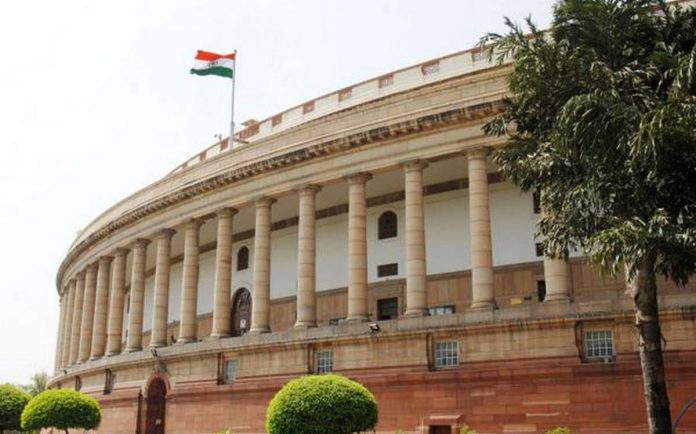- There is no disputing the fact that the Parliament is one of the most important pillars of the nation tasked with the responsibilities of legislation having widespread repercussions insofar as providing clear directions for the country to forge ahead is concerned. Since Independence, the democratic form of governance in the country has rightfully accorded reverential position to the Parliament where the roadmap for progression is given definite shape. The elected representatives thus are bestowed with tremendous opportunity to forge hands unitedly to not only come out with suitable legislations for the general good of the people they represent but also spell out well-defined plans to position the country formidably.

PC: rstv
- Keen observers of the Parliamentary proceedings would fondly reminisce how formidable and renowned parliamentarians used to go about following the due processes of debate, discussions, and passing of laws. Opposition voices representing different political parties were always accorded enough opportunities to express concerns, apprehensions, and patient hearings to incorporate necessary changes to a particular bill before passing it to become a law. It is observed with increasing trepidation that the time-honored traditions are given short shrift by adopting the route of passing ordinances by the successive ruling dispensations at the center on matters of great importance.
- The ordinances are mainly laws promulgated by the President of India on the recommendation of the Union Cabinet, which will have the same effect as an Act of Parliament. They can only be issued when the Parliament is not in session. Such an interim measure enables the Government to take immediate legislative action. The pandemic situation is one occasion forcing the Government to promulgate the three contentious farm laws which were subsequently passed as laws under extremely controversial circumstances in September 2020. As we all know, there was hardly any debate or discussions or vetting by the select/standing committee before the passage.

PC: Dinesh Dwivedi
- Undertaking extensive groundwork by the floor managers of the ruling dispensation involving all opposition parties to garner wider acceptance would have been the par for the course measure in ensuring the smooth passage of the bill. The idea behind such a move is to ensure any envisaged legislation should go through Parliamentary scrutiny covering all angles including counterviews as well as critical inputs/feedbacks. Note that involving opposition tantamount to preempting piquant situations that the Government finds itself now as the farm laws where the opposing representatives are supporting the agitating farmers keeps meandering along.
- Bypassing the tried and tested procedures by introducing laws in haste not only undermines good intentions but also foregoes the importance of informed debate through which required consensus could be built to ensure the smooth passage of the bill. Therefore, the onus is on the ruling dispensation to take the initiative by reaching out to the opposition beforehand. On its part, the opposition too must recognize the dignity of the institution of Parliament in ensuring smooth functioning in the larger interest of the nation. Under these trying circumstances, India’s Parliament can do wonders if Parliamentarians contribute without any parochial considerations.






